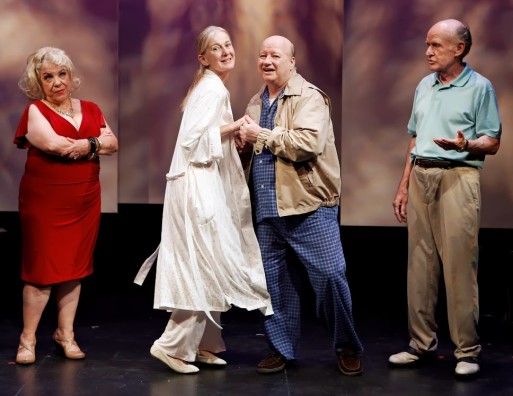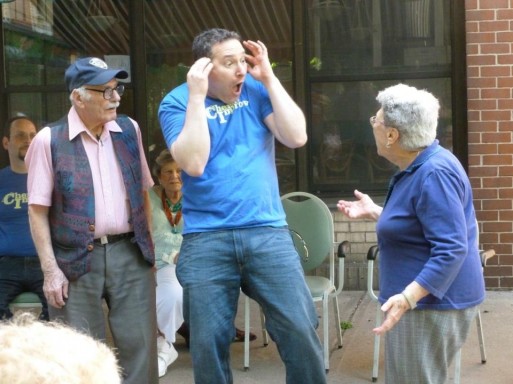I hear over and over again from industry experts that Alzheimer’s is the most devastating disease of all. I have listened to the personal stories of many of my friends— horrified by the words and convoluted beliefs—as they witness their moms or dads mentally degrade. Alzheimer’s is the most common form of dementia. According to the Alzheimer’s Association, 1 in 3 seniors dies with some type of dementia. Much of what we present here on SevenPonds is to educate our readers on the changes pushing forward in every aspect of end of life and new thoughts on how to treat Alzheimer’s are quite exciting.
The other day, I heard a great story on NPR’s “This American Life”—a segment called “Magic Words.” You can read the whole transcript here. The gist of it is this. In the past, we treated those with the disease as having to be forced back into the real world. Remind them where they are, what year it is, what president’s in office. It was suggested such information be posted on walls as a constant reminder to be pointed out. We are now examining other approaches and one is to question – why force a square peg in a round hole? Instead flow with it; go the improvisation route.
It just so happens I did an improv workshop a year ago here in San Francisco at BATS, a local theater. Two people or more get up on the stage and one begins with a made up scenario. Then it spins on like a ball back and forth or around the room between each person as they add or morph the scenario. Anything goes as does the mind of a dementia person. I loved it and the objective is to never go against what is tossed at you. Accept it and go with it. Because the world is make believe, you simply step into their world. Take the ball and toss it anywhere you want. It’s actually a quite brilliant approach. It’s like the tide is coming at you and you ride it rather than fight it, go down under and suffer being battered and tumbled on the ocean floor.
What’s fascinating is how everything is up for a rethink. New ideas of how to cope with end of life’s hard punches can be eased, even rewarding as we try new ways to reinvent. Just last year we did an interview with Marguerite Manteau-Rao about caregivers not resisting dementia patients but be in the moment – be mindful. Like the NPR segment suggests, the words coming out of a dementia family member’s mouth become magic words instead.
I look forward to more ideas and methods for coping.
Past posts about dementia:
- Read about how caregivers can be present to ease the toll on their lives.
- What is a dementia provision? An interview with Mike Turbow.

 Alzheimer’s Is The Sixth Leading Cause Of Death
Alzheimer’s Is The Sixth Leading Cause Of Death




 “Songbird” by Fleetwood Mac
“Songbird” by Fleetwood Mac

 How to Comfort A Dying Loved One
How to Comfort A Dying Loved One














